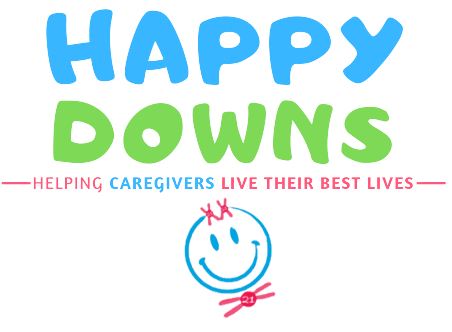This post contains affiliate links. This means that if you click on a link in this post, we may be compensated, at no extra cost to you. Please see our Terms of Use & Privacy Policy for full details.
D-E-B-T. An all too familiar thing for many family caregivers. The bills just keep piling up and despite your efforts to pay off what you owe, the debt just magically rebuilds and you have no clue how. The causes of debt elude you. You’re literally confused. I mean, it’s not like you’re spending your money on hotel stays, trips around the world, fancy dinners, cars or clothes. Heck, you can’t remember the last time you bought an item of clothing…thank God for that one family member (if you have one) that sends you underwear every Christmas or you’d be out here “going commando”.
What the heck is happening?! You work hard. You do not live a lavish lifestyle. You freaking live hand-to-mouth and still prioritize paying your bills, so why can’t you get rid of this pestering debt? Well, here are three causes of debt that apply to many family caregivers across the world…which one applies to you?
1. Family Caregivers Feel Obligated to Give Their Loved Ones Everything They Want
I am sure a therapist would have the right name for this, but whatever it is called and for whatever reason we do it, e.g., guilt, we feel this obligation to give our loved ones who have Down Syndrome everything they ask for…everything they want.
Now, I know there are things like medication or medical devices…lifesaving stuff…that we must get whether or not it drives us into more debt, but what about the other stuff like a new device, e.g., a smartphone, a laptop, a tablet…why do we readily break out the credit card and swipe away for these things?
Also, whether the item is lifesaving or not, have you considered the following:
- Is there a family member or friend who could make this purchase instead of you? Or lend you the money at no interest instead of you using your credit card or taking out a loan at a financial institution?
- Can this purchase be done later, e.g., two months from now, to give you some time to put together the cash?
- Is there a cheaper alternative for this needed item?
- Do I really have to buy this item? Does my loved one actually need it?
- Is there financial assistance available at the local or national Down Syndrome or Disability Foundation?
- Does a caregiver in the local caregiver support group have this item (used) and is willing to pass it on to your family? We need to learn to ask for help when we need it.
Sometimes, the plain truth is that you just can’t afford to give your loved one what they want at this time. I know this deeply affects us as family caregivers, as guilt tends to overwhelm us. But, I challenge you today to be honest with yourself. Be honest with yourself about your current financial situation and be not afraid or ashamed to say “At this time, I simply cannot afford that.”. The good news is your situation can change. You can always work towards affording it in the future.
2. Family Caregivers Don’t actually Know The Cost of Living for their Families
How much do you spend each week or month on the following?
- Groceries,
- Medication for you and your loved one,
- Travelling expenses
- Grooming for you and your loved one
- Phone bill
- Utilities, etc.
If you do not know where your money is going, then how will you know how much of that money you can truly put towards debt repayment each week or month? How do you even know that you are actually making enough money to cover your living expenses? This is why after you manage to cut your credit card debt in half, the following month it magically returns to you maxing out your credit card limit, because you are not aware of what you are spending your money on and how short your income is from actually being able to cover your expenses.
Think of it this way, you don’t actually know how dependent you are on your credit card. For example, if your credit card is covering 30% of your living expenses every week or month, then you are living 30% above your means, as your income can only cover 70% of your lifestyle, which is clearly a problem. But if you don’t know the problem, how can you address it?
3. Family Caregivers Have No Plan to Get Out of Debt.
Most of us acknowledge we are in debt, even if sometimes we pretend we are not, for the sake of our sanity at that given moment. But, knowing you are in debt and knowing how to get out of that debt are two completely different things. The sad truth is that most of us have not a clue how to even begin to start and tackle our credit card debt (plus any other debt we may have).
Some of us have started watching YouTube videos, listening to personal finance gurus, but when we see the mountain of debt we are in, we become paralyzed as it seems insurmountable. No need to feel ashamed…we all feel helpless at times. Sometimes we just have to pause and catch our breaths and then take a step forward. Here are some things you can do:
- Learn how to manage your money.
- Take the Get Out Of Debt Fast course at Udemy.
- Contact any national debt relief program in your country and see how they can help.
By taking these first steps, you can start to put together a plan that will actually work to slowly but surely get you out of debt.
Family Caregivers & Debt
Debt is an all too real challenge for many of us family caregivers and the truth is, being in debt not only affects our pockets, but it can unfortunately affect us in terms of our mental health. Thus, we should prioritize managing our debt in order to improve our quality of life and that of our families. Try and take things one step at a time and get the help you need.
Tell us how you’ve been tackling your debt.


